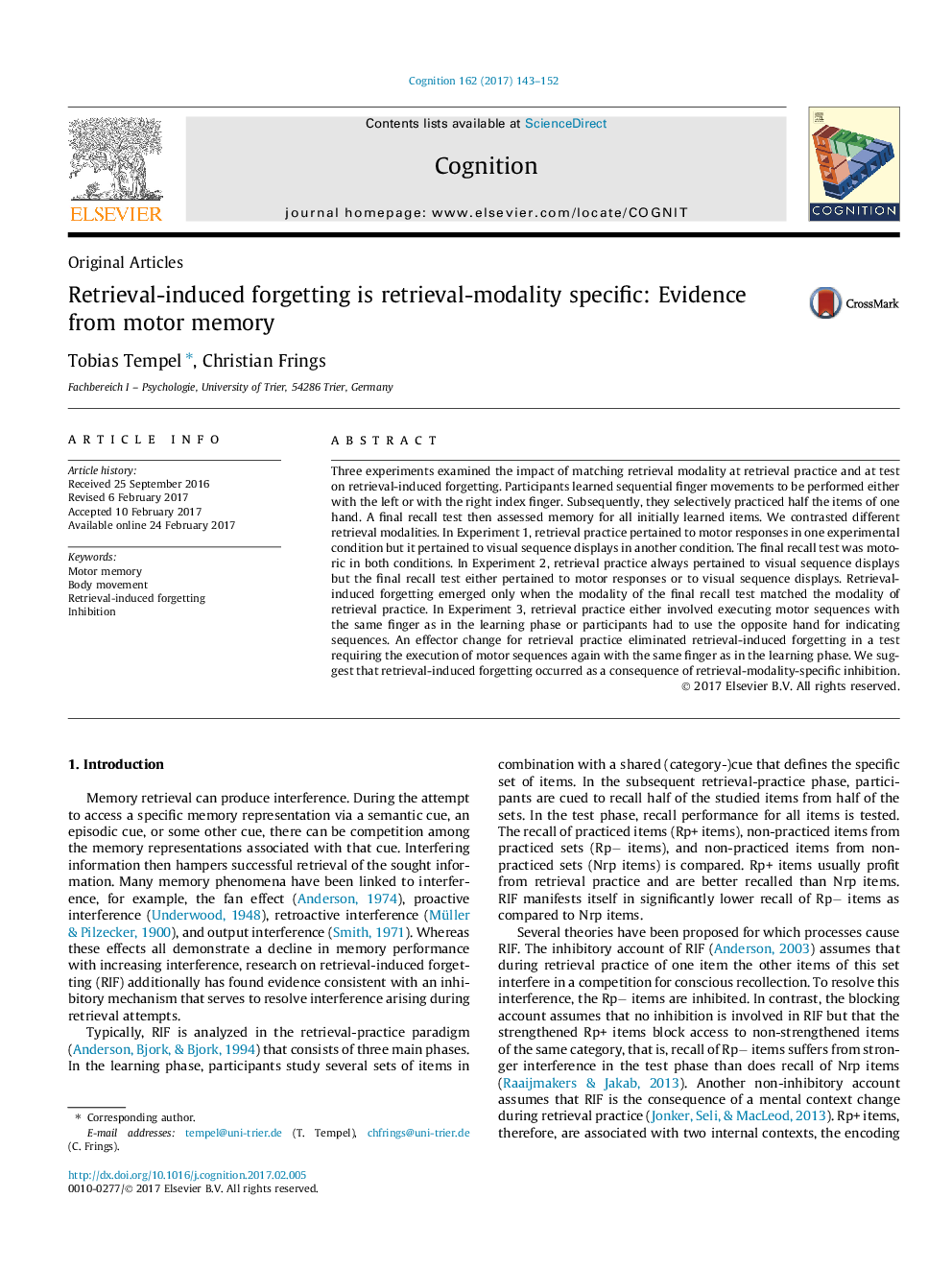| Article ID | Journal | Published Year | Pages | File Type |
|---|---|---|---|---|
| 5041667 | Cognition | 2017 | 10 Pages |
Three experiments examined the impact of matching retrieval modality at retrieval practice and at test on retrieval-induced forgetting. Participants learned sequential finger movements to be performed either with the left or with the right index finger. Subsequently, they selectively practiced half the items of one hand. A final recall test then assessed memory for all initially learned items. We contrasted different retrieval modalities. In Experiment 1, retrieval practice pertained to motor responses in one experimental condition but it pertained to visual sequence displays in another condition. The final recall test was motoric in both conditions. In Experiment 2, retrieval practice always pertained to visual sequence displays but the final recall test either pertained to motor responses or to visual sequence displays. Retrieval-induced forgetting emerged only when the modality of the final recall test matched the modality of retrieval practice. In Experiment 3, retrieval practice either involved executing motor sequences with the same finger as in the learning phase or participants had to use the opposite hand for indicating sequences. An effector change for retrieval practice eliminated retrieval-induced forgetting in a test requiring the execution of motor sequences again with the same finger as in the learning phase. We suggest that retrieval-induced forgetting occurred as a consequence of retrieval-modality-specific inhibition.
